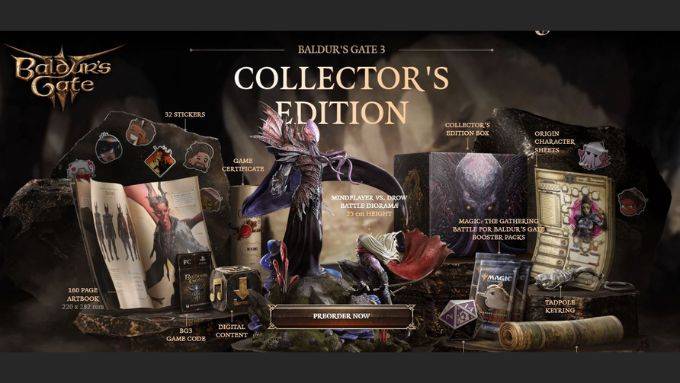Mobile games are one of the most popular forms of modern entertainment. If you are a gamer, you might be wondering how to make a mobile game. Although you may find it difficult at first, there are many resources available for creating a mobile game.

There are several things you need to keep in mind while developing a mobile game. Example – from concept development to actual structure, testing and deployment. To create any successful mobile game you must have dedication, creativity and ongoing efforts. Be prepared to iterate and adapt based on player feedback and changing market trends.
Here is an outline to guide you How to make a mobile game:
1. Conceptualization and Planning:
- Idea Generation: Brainstorm and come up with a unique game idea that aligns with your target audience’s preferences.
- Market Research: Analyze the mobile gaming market, identify trends, and assess potential competitors.
- Target Audience: Define your target demographic, including age group, interests, and gaming preferences.
- Game Mechanics: Outline the core gameplay mechanics, controls, and overall game design.
2. Game Design:
- Storyboarding: Create a visual representation of your game’s main scenes and gameplay flow.
- Characters and Assets: Design characters, objects, backgrounds, and other visual elements needed for the game.
- User Interface (UI): Design intuitive and user-friendly menus, buttons, and HUD elements.
- Levels and Progression: Plan the game’s levels, challenges, and difficulty progression.
3. Development (Game Engine, coding):
- Choose a Game Engine: Select a game engine that suits your skills and the requirements of your game (e.g., Unity, Unreal Engine, Godot).
- Programming: Write code to implement gameplay mechanics, interactions, and features.
- Art and Animation: Create and integrate visual assets, animations, and special effects into the game.
- Sound and Music: Add background music, sound effects, and voiceovers to enhance the gaming experience.
4. Testing:
- Quality Assurance (QA): Thoroughly test the game for bugs, glitches, and performance issues on various devices.
- Gameplay Testing: Have a group of testers play the game to gather feedback on gameplay, difficulty, and user experience.
- Iteration: Use feedback from testing to refine gameplay, make necessary adjustments, and polish the game further.
5. Monetization and Business Model:
- In-App Purchases (IAPs): Decide if you want to include micro transactions or IAPs in your game.
- Ads: Integrate ads (interstitial, rewarded, banners) if you plan to offer a free-to-play model with ad revenue.
- Paid App: Consider whether you want to charge users upfront to download your game.
6. Deployment:
- Platform Selection: Choose the platforms where you want to launch your game (iOS, Android, etc.).
- App Store Guidelines: Ensure your game complies with the guidelines of the respective app stores (Apple App Store, Google Play Store).
- App Store Optimization (ASO): Optimize your game’s title, description, keywords, and visuals for better discoverability.
- Submission: Submit your game to the app stores for review and approval.
Post-launch of a game you have to do some work. Things that help in marketing your game, and making it popular with everyone. The related issues are mentioned below.
- Gather Feedback: Encourage players to provide feedback and reviews, and use this feedback to make updates and improvements.
- Regular Updates: Plan and implement updates to introduce new features, levels, and address any issues that arise.
- Community Engagement: Interact with your players through social media, forums, and other platforms to build a community around your game.
What is a game engine
A game engine is a variety of video creation tools and frameworks that provide a simple environment for game developers to create 2D or 3D video games for mobile or computer. Game engines offer game pre-built systems for rendering a video’s graphics, handling physics, managing sound, and more.
A game engine saving game developers from having to reinvent the wheel with each new game.
It provides gameplay, storyline and visuals to make a game realistic and complete. it`s facilitate the complex technical subject of a game, such as designing characters, objects, backgrounds, and other visual elements required for a game.
Best game engine for beginners
| If you want to become a game developer, you must have an idea about the best game engine for beginners. For beginners, one of the best game engines is Unity. It is famous for its user-friendly interface and comprehensive easy learning. Unity’s drag-and-drop option functionality and visual scripting system (Bolt) make it accessible without a strong coding background. It has a large community of game development tips, tutorials and solutions for beginners. There are also some of the more popular game engines for beginners considering their beginner-friendly features to start their game development journey. Here is a list of popular and best game engine for beginners. |
- Unity
- Unreal Engine
- GDevelop
- A-Frame (VR)
- Godot
- GameMaker
- CryEngine 3
- Solar2D
- AndEngine
- BuildBox
Benefit of creating mobile games:
1. You can gain new skills, knowledge or insight into coding by making mobile games.
2. Creating puzzles or challenges that stimulate critical thinking and problem-solving skills.
3. Social interaction: Can be helpful in encouraging collaboration and community building.
6. Let’s your new creativity and imagination express.
7. Mobile games can earn you money through various means including in-app advertising and premium app sales.
Difficulty of creating mobile games:
1. Design challenges that allow players to gradually improve their skills as they progress.
2. Provide immediate feedback to help players learn from mistakes.
3. Testing the game with different types of players to adjust difficulty and identify potential frustration points.
4. Coding challenges that require a lot of knowledge, time and skills to develop any game.
5. To make a game, sometimes good money is needed.



